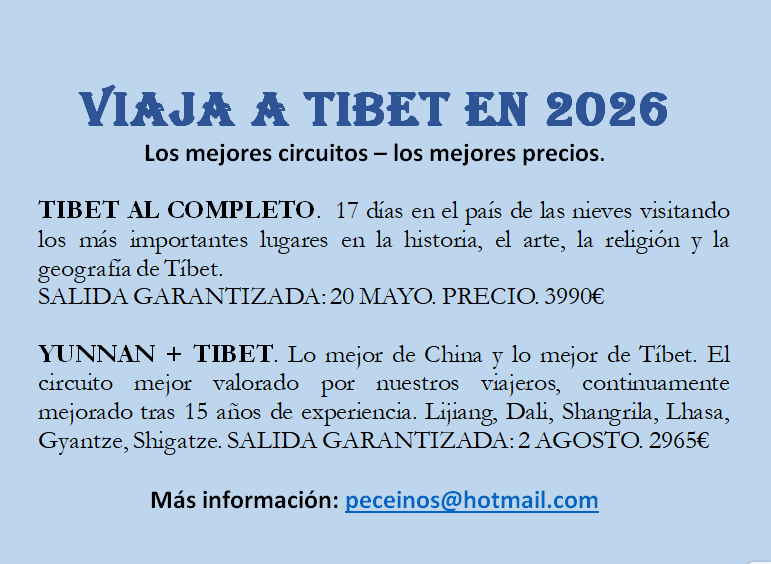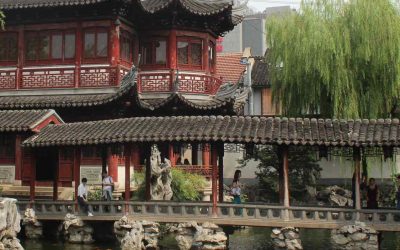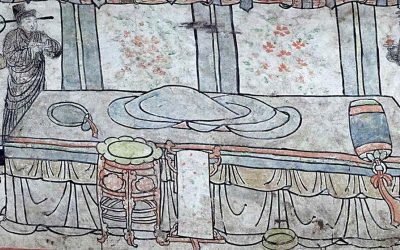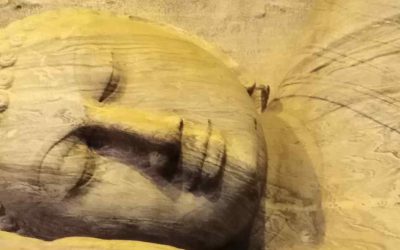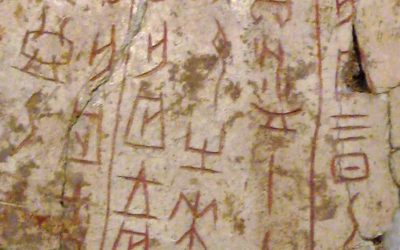Peter Harvey. Buddhism: Teachings, History and Practices. Cambridge University Press. 2013.
(Excerpts from the book. Page 11 and ff.)
In its origin, Buddhism was a Samana-movement. Samanas were wandering ‘renunciant’ thinkers who were somewhat akin to the early Greek philosophers and mystics. The Samanas rejected the Vedic tradition and wandered free of family ties, living by alms, in order to think, debate and investigate. The main Samana groups of Buddha’s time were:
JAINS
Jainism was founded, or at least led in the Buddha’s day, by Vardhamāna the Mahāvīra, or ‘Great Hero’. It teaches that all things, even stones, are alive, each containing a Jīva, or ‘Life-principle’. These are seen as individually distinct, rather like the Western idea of a ‘soul’ but unlike the universal Ātman of the Upanisads, and to be naturally bright, omniscient and blissful. The aim of Jainism is to liberate one’s Jīva from the round of rebirths by freeing it from being weighed down by an encrustation of karma, seen as a kind of subtle matter. The methods of doing so are primarily austerities such as fasting, going unwashed and pulling out the hair, so as to wear out the results of previous karma, and self-restraint, total non-violence to any form of life, and vegetarianism, so as to avoid the generation of new karma. The free-will of the Jīva is emphasized, though even actions such as unintentionally killing an insect are held to generate karma.
AJIVIKAS
Their founder was Makkhali Gosāla (Skt Maskarin Gośāla). Gosāla’s key doctrine was that niyati, or impersonal ‘destiny’, governed all, such that humans had no ability to affect their future lives by their karma: actions were not freely done, but were determined by niyati. Gosāla thus believed in rebirth, but not in the principle of karma as that which regulates the level of a person’s rebirth. The ‘Life-principles’ of living beings are driven by niyati alone through a fixed progression of types of rebirths, from a low form of animal to an advanced human who becomes an Ājīvika ascetic. The Ājīvikas practised rigorous asceticism such as fasting, nakedness and perhaps also disfiguring initiations, and aimed to die by self-starvation (as Vardhamāna in fact did), as a fitting way to end their last rebirth.
MATERIALISTS
The Materialists’ aim was to lead an abstemious, balanced life which enjoyed simple pleasures and the satisfaction of human relationships. They denied any kind of self other than one which could be directly perceived, and held that this was annihilated at death. They therefore denied the idea of rebirth, and also those of karma and niyati. Each act was seen as a spontaneous event without karmic effects, and spiritual progression was not seen as possible.
SKEPTICS
The Skeptics responded to the welter of conflicting theories on religious and philosophical issues, and the consequent arguments, by avoiding commitment to any point of view, so as to preserve peace of mind. They held that knowledge on such matters was impossible, and would not even commit themselves to saying that other people’s views were wrong. The Buddha saw this evasive stance as ‘eelwriggling’, though he shared the wish to step aside from the ‘jungle’ of conflicting views, and avoid dogmatic assertions built on flimsy grounds.
More posts on Chinese culture
Yu garden in Shanghai: Archetype of Chinese garden
Pedro Ceinos Arcones. Yu garden in Shanghai: Archetype of Chinese garden. Dancing Dragons Books. 2019. (Excerpts from the book) The Yu Garden is Shanghai's main monument and the one that best summarizes the city's history over the past few centuries. A private garden...
El jardín Yu de Shanghai: arquetipo de jardín chino
Pedro Ceinos Arcones. El jardín Yu de Shanghai: arquetipo de jardín chino. Dancing Dragons Books. 2019. (Extractos del libro) El Jardín Yu es el principal monumento de Shanghai y el que mejor resume la historia de la ciudad durante los últimos siglos. Un jardín...
The dog in China’s ancient tombs
Pedro Ceinos Arcones. La Magia del perro en China y el mundo. Dancing Dragons Books. 2019. (Excerpts from the book) The dog in China’s ancient tombs In China, dogs buried with their owners have been discovered in archaeological sites belonging to the most important...
El perro en las tumbas antiguas de China
Pedro Ceinos Arcones. La Magia del perro en China y el mundo. Dancing Dragons Books. 2019. (Extractos del libro) El perro en las tumbas antiguas de China En China se han descubierto perros enterrados con sus dueños en yacimientos arqueológicos pertenecientes a las...
Escuelas filosóficas en tiempos de Buda
Peter Harvey. Buddhism: Teachings, History and Practices. Cambridge University Press. 2013. (Extractos de la p. 11 y ss) En su origen, el budismo fue un movimiento Samana. Los Samanas eran pensadores errantes "renunciantes" que se parecían a los primeros filósofos y...
El origen de los caracteres chinos
Interesante teoría sobre el origen de los caracteres chinos en el libro John C. Didier, “In and Outside the Square,” Sino-Platonic Papers, 192, vol. 1 (September, 2009). Pag.71. La tecnología de la escritura aparece súbita y morfológicamente plenamente desarrollada en...
More posts on China ethnic groups
Yu garden in Shanghai: Archetype of Chinese garden
Pedro Ceinos Arcones. Yu garden in Shanghai: Archetype of Chinese garden. Dancing Dragons Books. 2019. (Excerpts from the book) The Yu Garden is Shanghai's main monument and the one that best summarizes the city's history over the past few centuries. A private garden...
El jardín Yu de Shanghai: arquetipo de jardín chino
Pedro Ceinos Arcones. El jardín Yu de Shanghai: arquetipo de jardín chino. Dancing Dragons Books. 2019. (Extractos del libro) El Jardín Yu es el principal monumento de Shanghai y el que mejor resume la historia de la ciudad durante los últimos siglos. Un jardín...
The dog in China’s ancient tombs
Pedro Ceinos Arcones. La Magia del perro en China y el mundo. Dancing Dragons Books. 2019. (Excerpts from the book) The dog in China’s ancient tombs In China, dogs buried with their owners have been discovered in archaeological sites belonging to the most important...
El perro en las tumbas antiguas de China
Pedro Ceinos Arcones. La Magia del perro en China y el mundo. Dancing Dragons Books. 2019. (Extractos del libro) El perro en las tumbas antiguas de China En China se han descubierto perros enterrados con sus dueños en yacimientos arqueológicos pertenecientes a las...
Escuelas filosóficas en tiempos de Buda
Peter Harvey. Buddhism: Teachings, History and Practices. Cambridge University Press. 2013. (Extractos de la p. 11 y ss) En su origen, el budismo fue un movimiento Samana. Los Samanas eran pensadores errantes "renunciantes" que se parecían a los primeros filósofos y...
El origen de los caracteres chinos
Interesante teoría sobre el origen de los caracteres chinos en el libro John C. Didier, “In and Outside the Square,” Sino-Platonic Papers, 192, vol. 1 (September, 2009). Pag.71. La tecnología de la escritura aparece súbita y morfológicamente plenamente desarrollada en...

